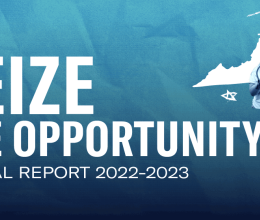Twenty-two states have now expressed opposition to de facto national ID law
Richmond, VA – Nearly identical bills prohibiting Virginia from complying with provisions of the federal REAL ID Act that compromise the privacy rights of Virginia’s citizens passed the House and the Senate yesterday.
The House approved Delegate Robert G. Marshall’s HB 1587 on an 88-10 vote, and Senator Ken T. Cuccinelli’s SB 1431 passed the Senate 30-9.
Passed by Congress in 2005, but still unimplemented, the Real ID Act requires every state to issue a federally-approved driver’s license or similar ID that will become part of a national database. Real IDs will be required to board an airplane and to access many federal facilities.
Because REAL IDs require significantly more background information than a driver’s license, privacy experts fear that the government will now have access to an unprecedented amount of highly sensitive information on citizens and that there will be an exponential rise in identity thefts from the database where the information is stored.
“This is not only a very important step forward for privacy rights in the state, but it looks as if Virginia will soon join 21 other states that have expressed opposition to some aspects of the federal REAL ID law,” said ACLU of Virginia Executive Director Kent Willis.
Counting Virginia, 22 states have now passed anti-Real ID Act legislation, some asking Congress to amend the law, some refusing to comply with some portions of the law, and others rejecting the law entirely. (For more information on REAL ID and actions taken by other states, visit www.realnightmare.org.)
The Virginia law, assuming it is signed by the Governor, will not be an outright rejection of Real ID, but it will prohibit any ID, or database linked to the ID, from containing biometric data (e.g., DNA, fingerprints, or retinal scans) or financial information (e.g., tax returns or personal investment information) that compromises “economic privacy.”
Real ID Act opponents say it will cost billions of dollars to implement, will greatly complicate and congest the system for obtaining drivers’ licenses by requiring background checks on every applicant, and will, in effect, create a mandatory national ID system. There are also concerns that a disproportionate number of low-income persons, the elderly, and minorities will have trouble obtaining REAL ID due to the cost or the documentation required.
Contact: Kent Willis (office) 804/644-8022





